‘Who TF Did I Marry’: How Human Design Can Help You See Through Manipulation and Trust Yourself
If you don't live in a cave, you've probably heard the the viral TikTok story 'Who TF Did I Marry'. In this article, I look at this story through the lens of empowering survivors with Human Design.
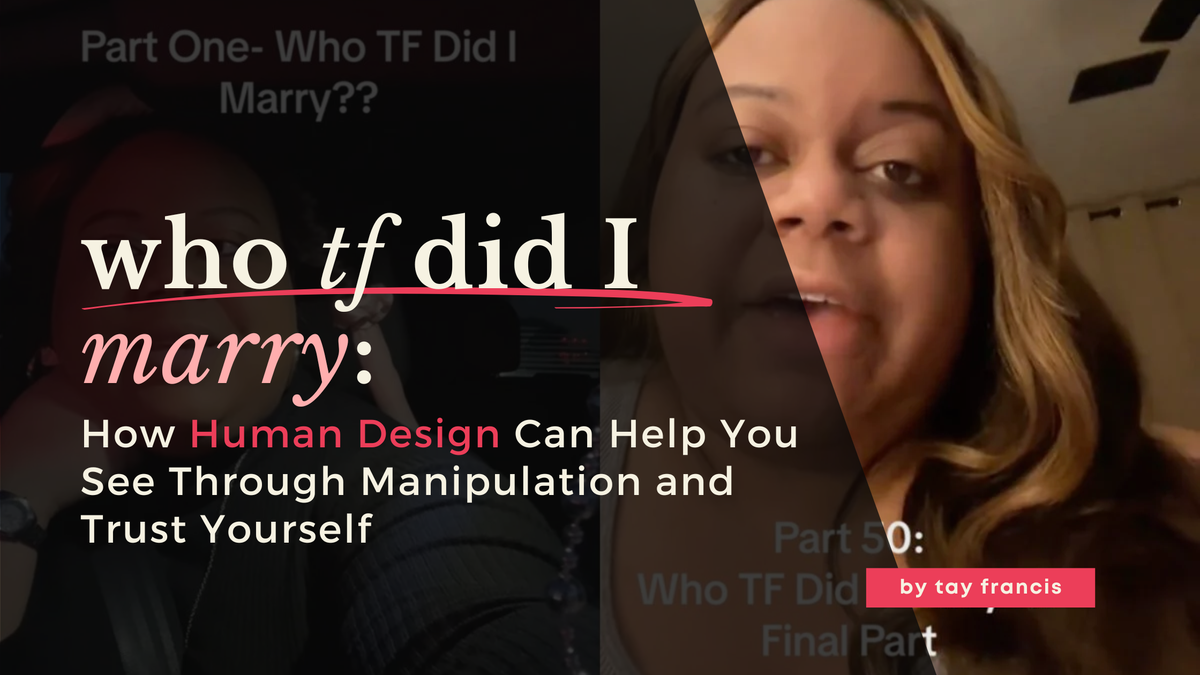
If you don’t live in a cave, you’ve probably heard the viral TikTok Story ‘Who TF Did I Marry’.
In this 50-part tell-all series, creator Reesa Teesa revealed the harrowing story of how her pandemic marriage to ex-husband, Jerome McCoy, unravelled.
What struck me as I listened to this story, is that many times during the dramatic saga, Teesa recounted that she “knew something wasn’t right” but didn’t pay attention to the red flags.
This got me thinking about how Human Design could have helped her, and women like her, recognise their intuitive signals in dangerous situations and relationships.
In this article, I explore just that.
- Violence against women and girls (VAWG) includes physical, sexual, verbal, emotional and financial violence. It is a systemic problem and Human Design does not solve or prevent this problem.
- I am in no way blaming Reesa - or any other survivor - for what she experienced. I simply want to empower women in manipulative or abusive relationships to recognise dangerous situations and get out.
- I’m writing this as a social researcher who has spent years researching violence against women and girls in a professional capacity.
- I don’t know Reesa’s human design or birth data so I make no specific claims based on this information.
VAWG and the pandemic
The United Nations referred to the drastic increases in violence against women and girls during COVID-19 as the “shadow pandemic”.
Lockdown mandates created financial insecurity, emotional distress, social isolation and loneliness - i.e. the perfect breeding ground for domestic violence to fester.
During the pandemic, 1 in 4 women said that household conflicts had increased during lockdowns and 70% of women felt that verbal or physical abuse by a partner had become more common.
Experiencing household violence of any kind erodes your self-esteem, self-confidence and self-trust.
One thing that I love about human design, is how it can help us trust ourselves, trust our bodies, trust our intuition.
And learning to trust ourselves can go a long way towards saving us from toxic and abusive situations.
Here’s how I think Human Design can help women like Reesa trapped in nightmarish relationships.
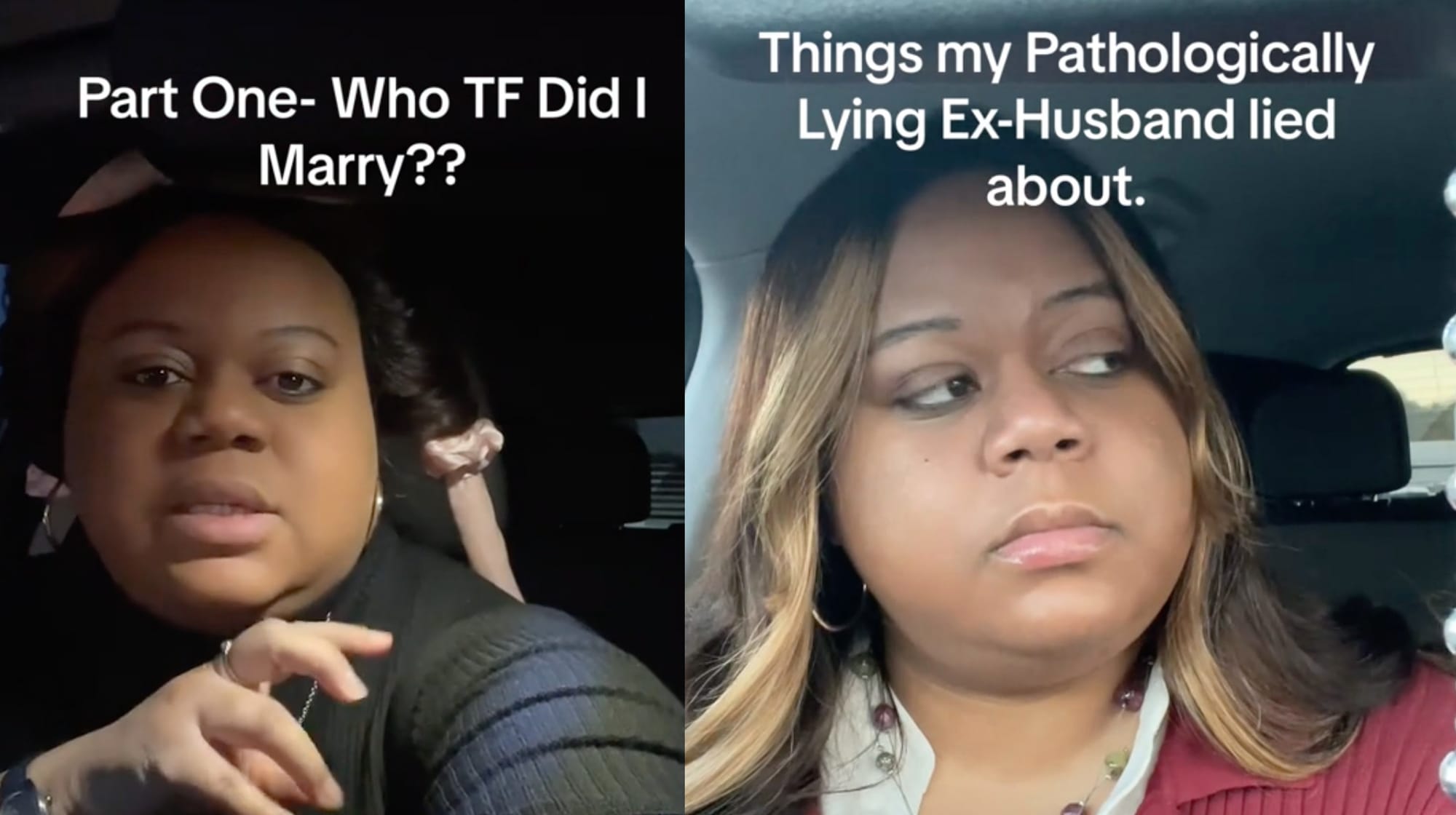
Did I enter into this relationship correctly?
Each Human Design Type has a specific way that they’re designed to operate and enter into relationships, known as your Strategy.
This is particularly important for the non-initiating Types (i.e. everyone except Manifestors).
Generators are meant to enter relationships in response to being asked.
Projectors need to be recognised and invited into relationships.
Reflectors need to wait a lunar cycle before deciding whether a relationship is correct for them.
Again, I don’t know Teesa’s human design type so I can’t say what her particular relationship Strategy is.
What I can say is that knowing her Human Design Type could have helped her check in with whether she had entered into the relationship in alignment with her Strategy when things started going wrong, and therefore, helped her make more informed and empowered decisions about whether to continue seeing her manipulative ex before they ever made it to the altar.
I think this is a powerful tool for any woman to have in her back pocket.
Simply having a little checkpoint of “did I get into this relationship in a way that’s good for me?” can shift the power dynamic of the relationship back into the hands of the woman. It can shift the perspective back to what is best for you.
It’s a question I’ve asked myself many times in my relationships and one I always recommend asking in your own life.
Recognizing and understanding your body’s signals
Over and over in the 50-part saga, Teesa mentioned that she knew something was wrong, she knew that things weren’t adding up, but she ignored her feelings.
As a VAWG researcher, I cannot tell you the number of women I’ve interviewed who have said some version of…
- Something didn’t feel right but I thought I was overreacting…
- He was so good to me so I ignored the red flags…
- I thought it was all in my head…
- I second-guessed myself even when I knew things were wrong…
And it breaks my heart every time.
As women, we are conditioned from birth to second-guess the signals that our bodies and intuition send us.
What I love about human design is that it makes ignoring our body’s signals almost impossible.
In human design, your intuition comes from your body aka your Authority.
There are 8 different Authorities in human design and they each correspond with specific body signals that, once you understand them, become impossible to ignore.
When you understand your Human Design Authority, you know when something is or isn’t right for you.
When you feel a YES in your body for the first time, you simple cannot ignore when a situation is a hell no.
Another powerful tool in the toolkit of any woman in an unhealthy relationship.
Stopping second-guessing and self-doubt spirals
One of the ways Human Design has been most helpful for me and my clients is in stopping negative thought spirals fuelled by second-guessing and self-doubt.
Here’s a f*cked up statistic: 70% of us are walking around with undefined or open head centres.
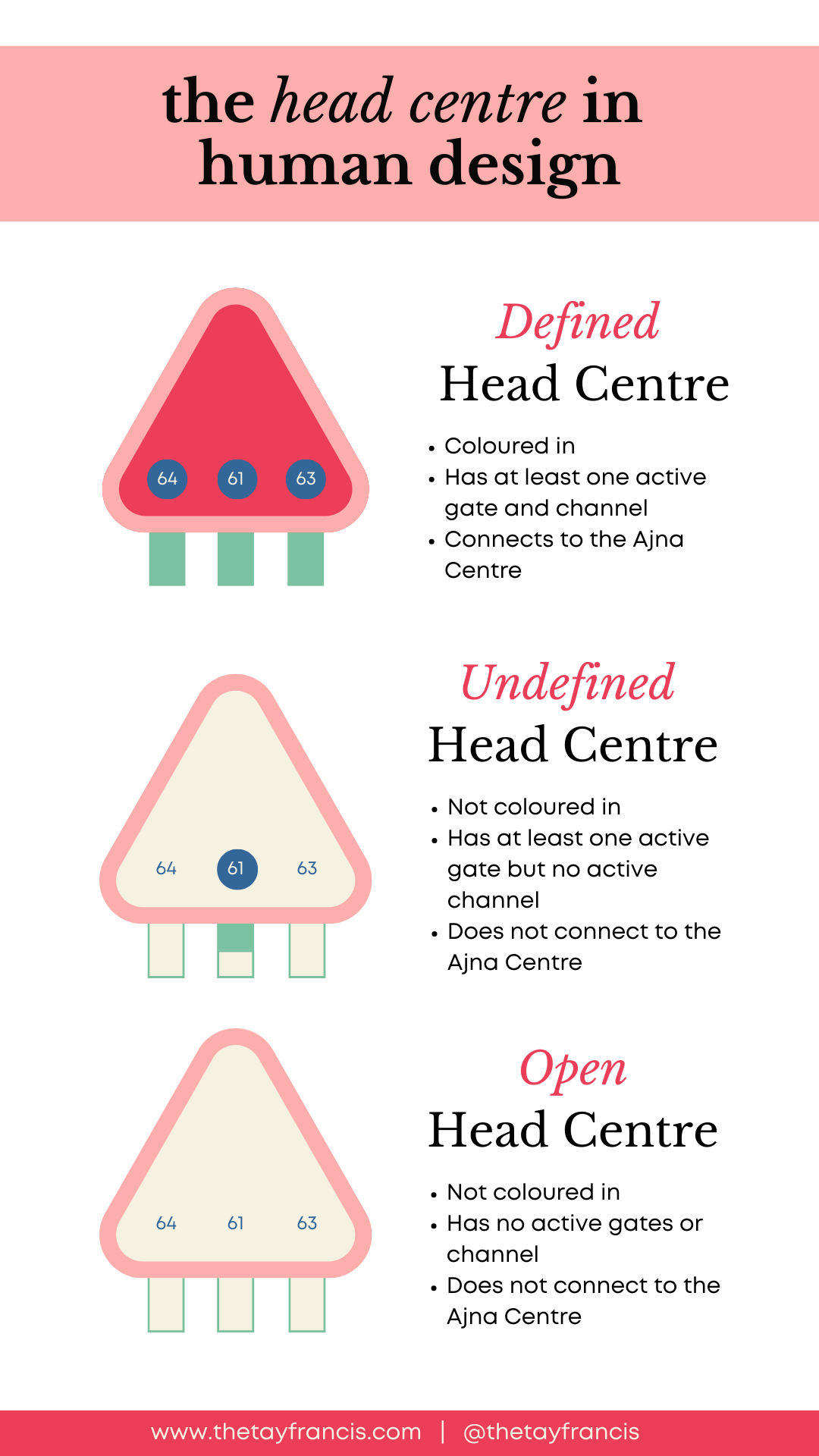
In Human Design, the head centre is where questions and doubts live.
Most of these questions are about things that don’t actually matter.
If you find yourself asking dozens and dozens of “what if” questions after you make a decision, chances are you have an open or undefined head centre.
In relationships, your undefined head centre questions might sound like:
- What if I’m overreacting?
- Am I just not used to being treated well?
- What if something’s wrong with me?
- What reason do they have to lie?
- Am I overthinking a good thing?
- What if all relationships are like this?
- What if things get better?
- What if they change?
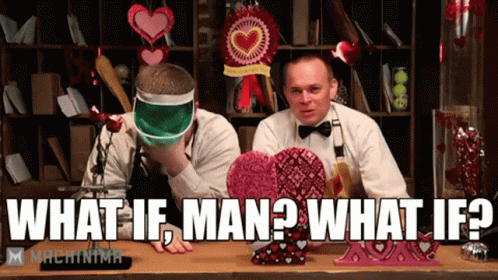
And when you’re in a relationship with a manipulative or abusive partner, they amplify these doubts and questions, further eroding your self-trust.
Understanding that you will ask yourself these questions and learning not to identify with them as truth can break these cycles of second-guessing and self-doubt and help you take your power back.
It can help you affirm yourself, your perspectives and your experiences – one of the most powerful defenses against a partner who manipulates you.
Leaning on your support systems
We all need community. Science affirms this. Human Design affirms it too.
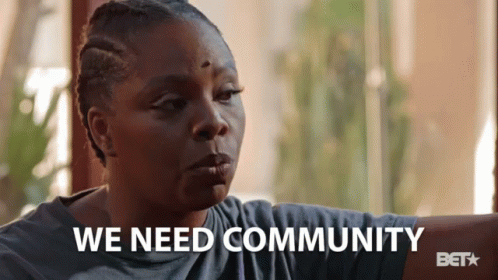
Manifestors can initiate but they need others to finish the projects they can’t. Generators need people to ask them questions and give them something to respond to. Projectors need others to recognise and invite them into new experiences. Reflectors both need people and community spaces and are the silent barometers that keep our communities healthy.
Yet, despite the overwhelming evidence of how all human beings need support systems, militant individualism in the Western world often leaves survivors isolated in toxic and abusive situations.
On top of that, shame, doubt and fear often keep women like Teesa from speaking about their experiences within these harmful relationships – which keeps them isolated and prevents them from getting the support that they need to leave these situations.
When you understand your human design Type - especially if you’re a non-energy type like a Projector, Manifestor or Reflector - you understand just how important your support systems are to your survival.
I can tell you from my own experience, when I learned that I was a Projector and that I don’t always see myself and my own life clearly, my friendships and family supports became non-negotiables in my life.
This is what helped me finally see how unhealthy my ex-relationship was. It’s also what helped me find my way after I finally got out.
Community is absolutely crucial for women in these situations.
Our communities give us perspective.
They help us see the things that we don’t see because we’re too close, too invested or too ashamed.
They pull us out of the pits we’ve fallen into and act as our crutches as we find our footing and move forward.
In Conclusion
I’m so grateful that Reesa got out of that horrible marriage with a pathological liar and manipulator.
I’m so grateful that she did not experience any physical or sexual abuse (at least not that she mentioned) and is now moving on to a better chapter in her life.
And I’m beyond grateful that she had the support of so many women along the way and now from all over the world.
If you’re reading this, Reesa, I want you to know:
We see you. Thank you for sharing your story with us. I hope that you get to London and that you get your BMW X5. And I wish you the literal best for every single day of the rest of your life.
And if at some point you want to dip your toes into human design, you know where to find me.
Love,
Tay 💕
P.S. Did you watch the Who TF Did I Marry series?
Leave a comment below. I'd love to hear your thoughts.

